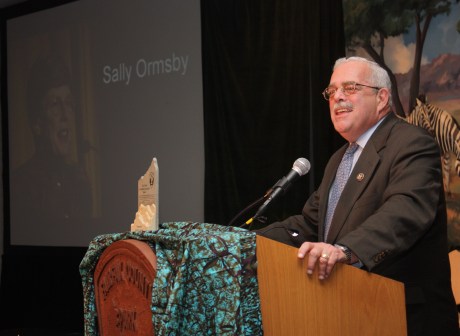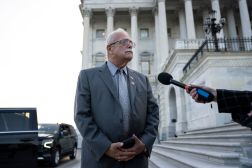FITARA scorecard offers baseline, holds people accountable, APHIS CIO says

While some IT heads may not like the scorecard associated with implementation of the Federal IT Acquisition Reform Act, one agency chief information officer said Wednesday that it has helped him establish a baseline and hold people in his agency accountable.
“Many people may not say this, but actually the scorecards have done me a favor,” said Gary Washington, chief information officer of the Animal and Plant Health Inspection Service at the U.S. Department of Agriculture. “Because if you want to implement change, you have to know where you are, what your baseline is, where you’re starting from.”
During a panel discussion at Verizon’s Government of the Future Summit, produced by FedScoop, Washington also said the school-style FITARA scorecard helped him hold people accountable. The U.S. Department of Agriculture received a C-minus on the most recent scorecard, released in December 2016.
The overall grades are derived from scores in four areas:
- Data Center Consolidation
- IT Portfolio Review Savings
- Incremental Development
- Risk Assessment Transparency
“In terms of managing our portfolio we’ve always been pretty decent at that, pretty good at that,” he added. “But it’s allowed us to probably stay on top of our portfolio.”
And more broadly, Washington said FITARA has helped enable him to institute a culture change toward seeing IT as a strategic investment.
“I think it’s not just a CIO, it’s an IT professional, when you talk to senior leaders in your organization they don’t want to talk about servers, or you know, the bandwidth … they want to talk about things that are important to them,” Washington said.
“How is this going to help me internally get a response quicker in terms of an agricultural issue?” he said as an example.
Washington added: “I’m frequently having conversations not about IT, but about what they need.”
Fellow panelist Melonie Parker-Hill — division chief of the enterprise server operations center at the State Department — said about scorecards: “They’re fine, I won’t say I love them, but like you said, they actually give us not only just a baseline, but we can track our trends. So we can see our highs and lows and we can respond accordingly.”






